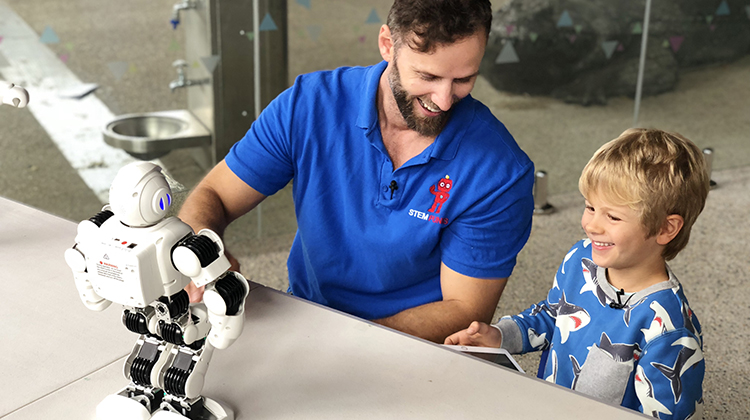Inspiring kids to fail: The entrepreneurial mindset for the future

There is more to entrepreneurship than wearing black t-shirts, building the next big app and making millions. Becoming, and being, an entrepreneur is hard work, and a lot of it has to do with embracing failure as the catalyst for success.
The world is full of ideas. What is lacking though is a mindset of innovation, creativity, and entrepreneurship to turn these ideas into value for people.
Inspiring kids to succeed through failure is actually the highway to self-belief and achievement. By overcoming blockers to innovation and enabling a future-centric mindset, we can inspire a new generation of innovators, solving tomorrow’s problems today.
So how do we make and allow this to happen? Throughout our programs teaching STEMs to young children and our interactions with schools across the world, we actively promote this mindset. This can be quite a challenging exercise, especially for straight-A students who always seek perfection.
What helps in this process is the application of ‘Design Thinking’ which enforces the need for rapid prototyping and evaluation of ideas. The key to success is not measured on perfection, but rather on how fast you can fail to reach a suitable solution for your target audience.
Although failure is a dauting emotion, using techniques like ‘Design Thinking’, it becomes part of the process and an acceptable part of innovation.
History shows that some of the biggest break-throughs have come after tremendous failure. We only have to look at Michael Jordan, Albert Einstein or Walt Disney as examples of this.
Yet, we don’t look at these people as failures, but rather admire their achievements and tell ourselves how amazing they are.
So, what can we as teachers learn from them? What are the key takeaways that could help learning and innovation to flourish? In my opinion, the key is in failing fast and recovering quickly.
Over the years doing start-up mentoring, I have met some amazing people. They had ground-breaking ideas, but their resumes were lined with multiple degrees and in some cases even multiple PhDs. For some reason though, they found it hard to transform their ideas into something of value.
Innovation plus a great idea is only valuable if together they produce that value. As many ideas do, they get stuck in backyard sheds or in office spaces and that’s it, those ideas are never set free.
I frequently ask young students in our programs, “what blocks innovation”?
The most common answers are, money, time, and skills. From experience working with entrepreneurs, I tend to agree. But there are also two critical virtual barriers to success: the first is the fear of failure and the second is the fear of rejection.
Both are key emotions that any successful entrepreneur has to overcome to succeed and to turn those amazing ideas into valuable outcomes.
As a father of three kids, I have seen first-hand the importance of play and failure when it comes to learning. Watching kids learn through failure is mesmerising.
Take for example a baby learning to walk. They first try and stand up, then quickly fall over. This pattern is repeated until eventually, the child stands up and starts walking. Done without fear, this process is fast and leads to amazing achievements in a short period of time.
We can learn a thing or two from babies. As we grow older, we accumulate emotions based on experiences. Most of us develop a fear of failure and a tremendous fear of rejection.
One of the reasons kids learn so fast is that they don’t have this fear of failure. They are also not afraid to go outside their comfort zone and explore.
So, here’s my best piece of advice. Take the children outside the school or the home; immerse yourselves in a neutral environment. Somewhere they’re allowed to play, to explore, and discover new things about each other, including strengths and weaknesses. And watch the magic happen.
As Albert Einstein famously said, “Imagination is more important than knowledge”. So, get out there, stretch your imagination, and fail fast without fear!
STEM Punks is a STEM education program for students and teachers in primary and secondary schools and a 2019 Telstra Business Award winner.